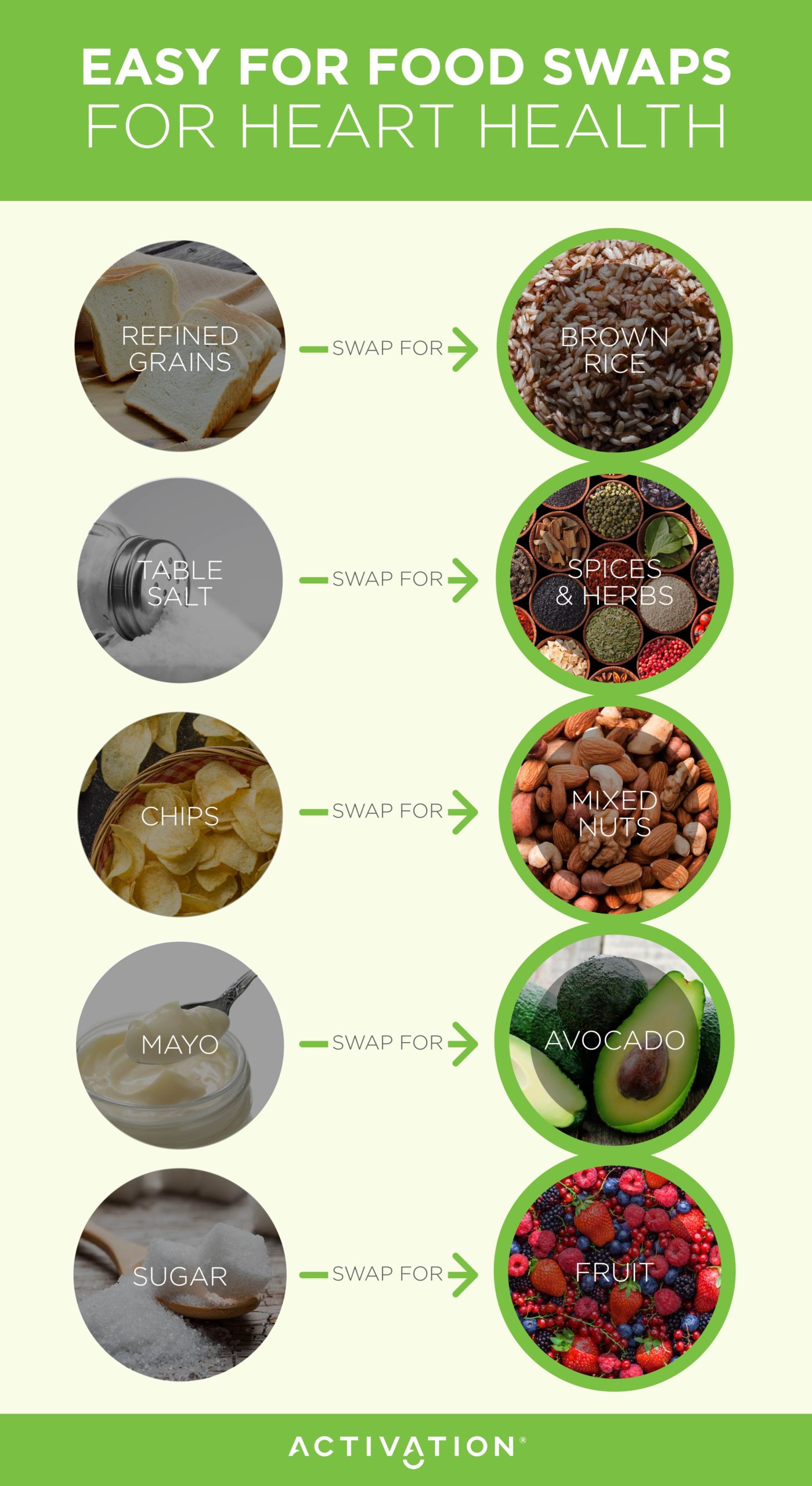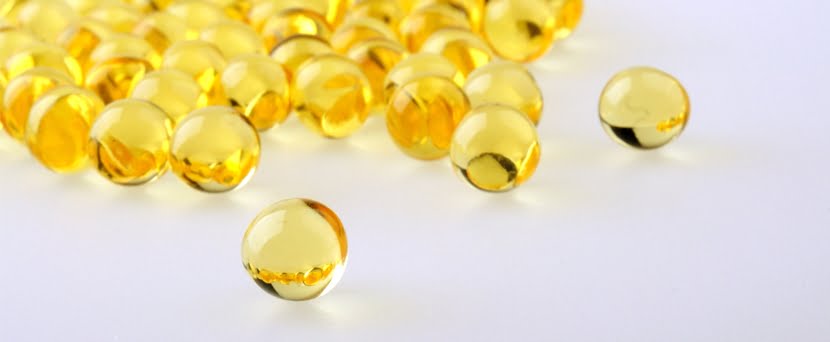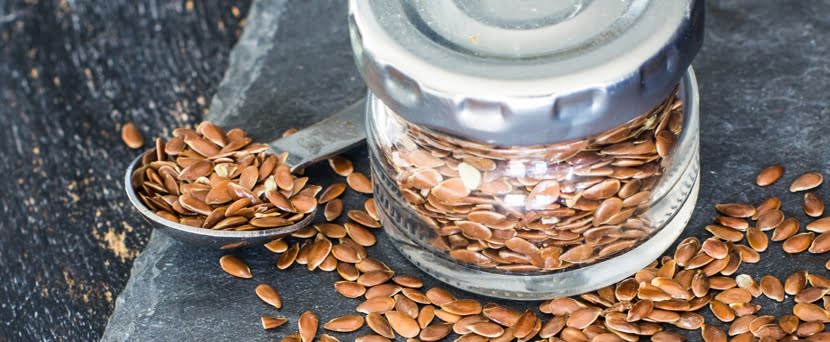Easy Food Swaps for a Healthy Heart
I don’t think there is anyone in this world who doesn’t want to be “healthy”. Is that a fair thing to assume? I don’t think people pick food because they want to build up a really great layer of plaque on their arteries. I don’t think anyone’s out there thinkin’, “You know what I should do? I should do whatever I can to really let my muscles atrophy. Just waste ‘em away.”
We all want to be healthy. We all want to take care of these vessels that support us, carry us around. But “health” can start to feel like an unaccomplishable goal, because there are so many Very Important Rules about how to get it, and they seem to change every other day. One day gluten is the pillar of a healthy diet, the next day it is poison. It’s exhausting, and confusing. But it doesn’t have to be this way. Any positive changes you make have an impact, and they’re all worth it. Going for a 10 minute walk with your dogs will have a positive effect on your health, and so will eating one carrot per day.
So let’s get back to basics! Let’s talk about some easy swaps you can make today, without spending thousands of dollars or buying 13 new diet books, that will make you healthier. We’re focusing specifically on heart health here: foods that will support your heart health, and take some strain off that precious organ that beats to keep you alive. Let’s dive in!
Swap refined grains for whole grains
By “refined grains” I mean bleached white flour, I mean instant rice, I mean cereals processed within an inch of their lives. The 2015-2020 Dietary Guidelines for Americans says at least half our total daily grains should come from whole grains. The less processed the grains are, the better they are for you. Why? Because they’re higher in dietary fiber, which helps keep things moving through your body. Because they’re higher in vitamin and mineral content. When grains are refined, things like vitamin B and magnesium are lost.
Refined flour has the bran stripped out of it. This creates a lighter flour, which makes it easier to bake really delicate desserts and fluffy white bread. This used to be a status symbol: the rich could afford the white flour, while the poor had to make due with the grainy stuff. Funny how times change!
So when you’re buying bread, look for the words “whole grain” at the top of the ingredients list. And try to incorporate more whole grains into your diet generally. I’m talking brown rice, oats, quinoa, bulgur, barley, bran…the grainier they are, the better.
Replace salt with herbs and spices
Salt is a thoughtless spice. It’s something you dump in any recipe because that kick of tart, kinda hot flavor makes literally everything taste better. It’s the reason most restaurant foods taste as good as they do. But eating too much salt can raise your blood pressure, which puts strain on your heart and puts you at risk of heart disease.
To avoid an excess of salt, you’ll want to steer clear of highly processed foods (you’ll hear this again and again in this post, and if you come away from reading it with one lesson, let it be to eat whole foods, not processed ones). Salt is used in a preservative in everything from breakfast cereals to cheeses.
And when you cook, see if you can cut back on the amount of salt you add to a recipe, and play around with other spices instead. You’ll get the benefit of introducing new flavors to your dishes, and often these herbs and spices come with some serious health benefits of their own. We love basil, coriander, and cinnamon in as many things we can.
Love chips? Try nuts!
Snacking is a great activity to bring some awareness around. So often we have healthy breakfasts, healthy lunches, healthy dinners…and then 9p.m. rolls around and all bets are off. Out come the chips, the chocolate bars, the beef jerky (no? Just me on that one?), and we dive in, even though we’re not really hungry anymore.
General wisdom says that snacking after dinner isn’t the best for our health because it’s just calories we don’t need as we’re winding down towards rest (and can actually impede our sleep!) so if you can cut back on that habit altogether, so much the better. And when it comes to daytime snacking, if you’re craving that savoury crunch, might I suggest pistachios?
Or walnuts, or cashews, or almonds, or anything else your heart desires in the world of nuts. Nuts contain a variety of fatty acids and vitamins that are great for your heart, skin, and nails. Studies have shown that walnuts in particular help reduce the risk of cardiovascular disease. And because they’re dense in those nutrients and healthy fats, they actually fill you up. Good news all ‘round!
Swap mayonnaise for avocado
People often think of avocado being the base of guacamole, or something you chop up in a green salad. But their creamy texture and (again) healthy fats make for a great addition to your sandwich, too. They’ll bind your tuna, egg, or chicken into tasty spreads as well as mayo, and they come with great benefits: they lower bad cholesterol, raise good cholesterol, and they’re full of protein, fiber, and minerals.
Instead of sugar, try fruit
I’m not going to tell you to cut sugar out of your diet, because that is one of those Big Changes that takes a lot of time, willpower, and repeated failures to accomplish. But you know how it’s become routine to sprinkle sugar over your oatmeal in the morning? Maybe try throwing some berries into the mix instead. Or look into the easy swaps you can make in desserts: applesauce instead of sugar, or red velvet cake with beets . I like to pretend that I’m my own picky two-year-old, and get great satisfaction from slipping spinach into baked goods.
Leave refined oils behind with Flaxseed oil
One of the easiest swaps you can make to support your heart is to switch out refined oils and fats for flaxseed oil. Refined oils are often full of trans fats. These fats are highly toxic and contribute to obesity, heart disease, and a host of other health concerns.
Flaxseed oil is rich in healthy fats and it has other key nutrients that are important for keeping your heart in tip-top shape. The lignans in flax protect against plaque deposits in your arteries by keeping white blood cells from sticking to blood vessels’ inner linings.
According to Dr. Edward Group at Global Healing Centre, “The risk of heart disease is lower in individuals who take flaxseed oil. Evidence indicates that those who eat a lot of ALA are less likely to suffer a fatal heart attack and it reduces high blood pressure.”
Perfect Press® Flax Oil is the best on the market. We use only the finest organic flaxseeds and each batch is hand-selected. We created state-of-the-art technology that presses the oil out of each seed without damaging its powerful but delicate components.
So do your heart a favour. Swap to Perfect Press® Flax Oil today.

Related links:
https://www.cnn.com/2015/12/31/health/food-swaps-eat-healthier/index.html
https://www.stjhs.org/healthcalling/2018/february/5-surprising-food-swaps-for-healthy-hearts/
https://www.sciencedaily.com/releases/2013/05/130508123019.htm










